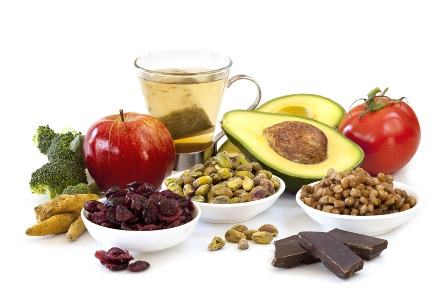What do you need to know about minerals to maintain a lean, healthy, energetic body?
The body is a complex organism with systems and functions that run round the clock. These moving processes require energy to keep them functioning at optimum levels. Yet, the fuel given to the body is not enough. Vital components of health must be available in the foods consumed daily.
Minerals – For The Body and Mind
The analogy of a mixer in the kitchen is apt. Calories gleaned from foods are the electricity. They keep the body system fueled and running. More is needed, however. What about the raw ingredients in the mixer bowl used to create a culinary delight?
When cooking, a recipe will call for specific ingredients in specific quantifies and qualities. If these ingredients or quantities are not added as specified, substituted for something else, or left out completely, the outcome will not be what was written on the recipe. Most often this ends in an icky product which no one really wants.
The body is no different. Certain vital ingredients, called nutrients, must be added for it to maintain healthy function. Not getting these nutrients in adequate amounts or forms unusable by the body will result in poor body function, low energy, disrupted sleep, serious illness, and sometimes death.
Minerals: Important Health Builders
Minerals are just one group of these vital nutrients. For anyone studying body health for the first time the natural question is: Aren’t minerals made of rocks?. In short, the answer is yes. Minerals are, in essence, rocks. Yet, setting a dinner table with stones of differing colors is not necessary.
To maintain health minerals are needed in only very small quantities. Careful meal planning including a wide variety of earth-grown food sources will provide the essential minerals in adequate amounts. A good supplemental vitamin can also be taken to ensure the body is getting what it needs on a regular basis.
Vital Minerals and What They Do
Knowledge is power. In this case it can prevent illness and promote a life that is full of energy and health. Knowing specific minerals and their effects on the body will help diagnose deficiencies as well as bolster weak body function.
| Mineral | Function | Sources | Deficiency | Overdose |
| Magnesium | Needed to produce essential enzymes, sugar metabolism, muscle and nerve function, & permeability. | Nuts: brazil nuts, almonds, & cashews Produce: greens, veggies, sea weed, parsnips and grains like wheat, bran & milk | Muscle malfunctions like cramps, and spasms, weakness, general tiredness and depression | Generally caused by taking too many supplements or antacids: diarrhea and respiratory issues |
| Calcium | Calcium is essential to build strong and healthy bones and teeth. It also helps cell division, blood clotting, and nerve conduction. | It is found in milk, cheeses, ice cream, yogurt as well as spinach, sardines, sesame seeds, egg yolks and dark green vegetables. | Not getting enough calcium results in brittle bones, unhealthy teeth brittle fingernails and hair, thin blood with poor clotting ability and more. | It is extremely difficult to overdose on calcium. If you do the signs are kidney stones, the need to urinate often and/or constipation. |
| Potassium | This mineral goes straight to the heart. It helps regulate heart beat, muscle contraction, balance fluids and healthy blood pressure. | Foods rich in potassium include: water cress, lintels, artichokes, kelp, molasses, buck wheat, bran, avocados, garlic, Swiss chard and spinach. | Potassium deficiencies are manifested by fatigue in both mind and muscles, cramping and spasms, and irregular pulse. | Low blood pressure, lethargy, pale complexion, irregular or racing heart beat, lack of strength, mental fog and tingling in extremities. |
| Iron | Iron is needed to help the blood carry oxygen and deliver it to the cells of the body. It also helps to clean the body and create fuel to provide energy. | Red meat is a great source of iron. It can also be found in: molasses, beans, spinach, shellfish, chicken, chard, arugula and whole grain foods. | Iron deficiencies demonstrate themselves by extreme fatigue, low energy and stamina, trouble sleeping, anemia, & low blood oxygen. | Overdose of iron can be toxic. It is only needed in very small amounts. Nausea, extreme stomach pain, vomiting, bloody diarrhea. |
Other minerals that are vital to healthy body function include: Sodium, Phosphorus, Selenium, Manganese, Copper, Chromium, Zinc, Cobalt and Lithium. These mineral are only needed in very small amounts, but the old adage of small things packing a powerful punch is very true.
Toxic Minerals
Not all minerals are good for the body. Some are poison, and should be avoided. Lead is perhaps the most well known toxic mineral, but there are others: Arsenic, Aluminum, Mercury and Cadmium. People were frequently exposed to these elements many years ago, before we understood their negative health consequences.
Today, it's much harder to get exposed to any of these minerals in toxic quantities. Still, you should always do your research and take care not to expose your family to any of these. If you think someone in your family has been exposed to any of the toxic minerals listed above, contact a medical professional immediately.
The one area where you run a high risk of running into toxic quantities of these minerals is when handling certain antiques. If you frequently interact with potentially toxic antiques, or plan to do so, make sure you do your research so that you can adequately protect yourself. You don't need to go overboard into full-blown panic mode, but caution is key.
The content of this article should not be taken as professional medical advice. Always consult a medical professional before making any decisions pertaining to your or your family's health.
The image featured at the top of this post is ©Robyn Mackenzie/Shutterstock.com
